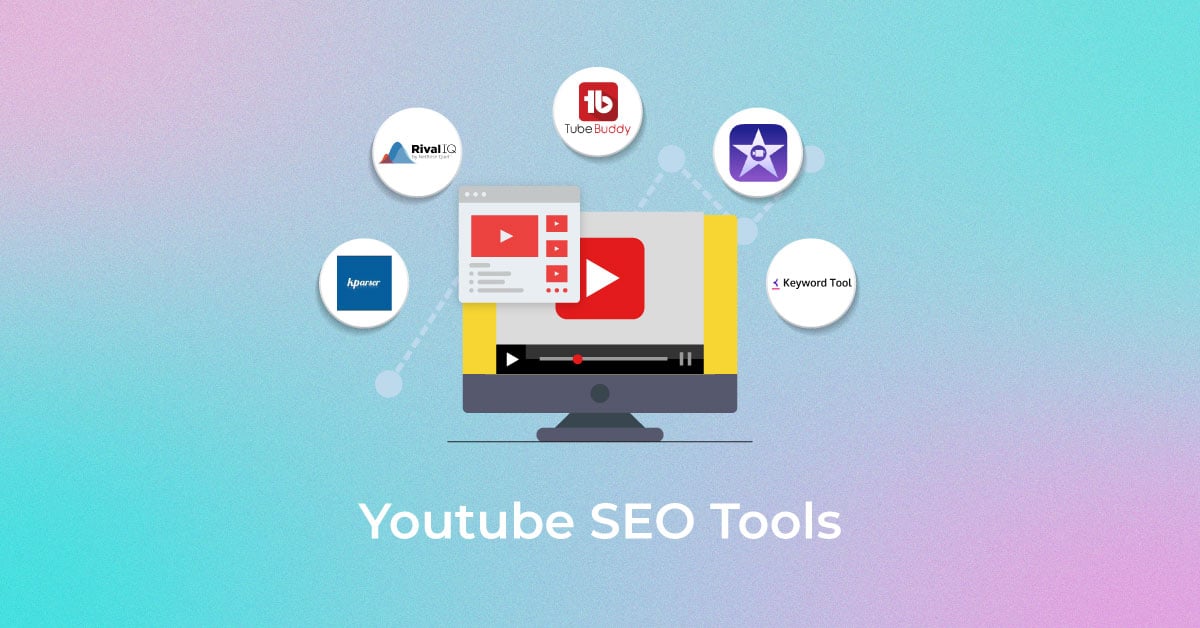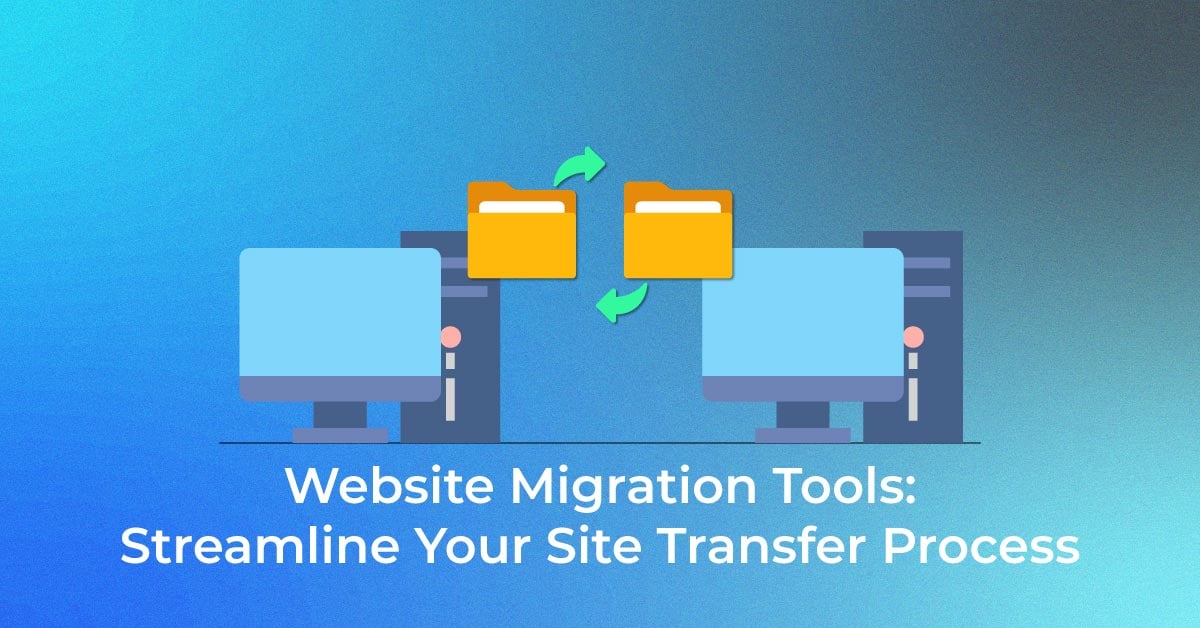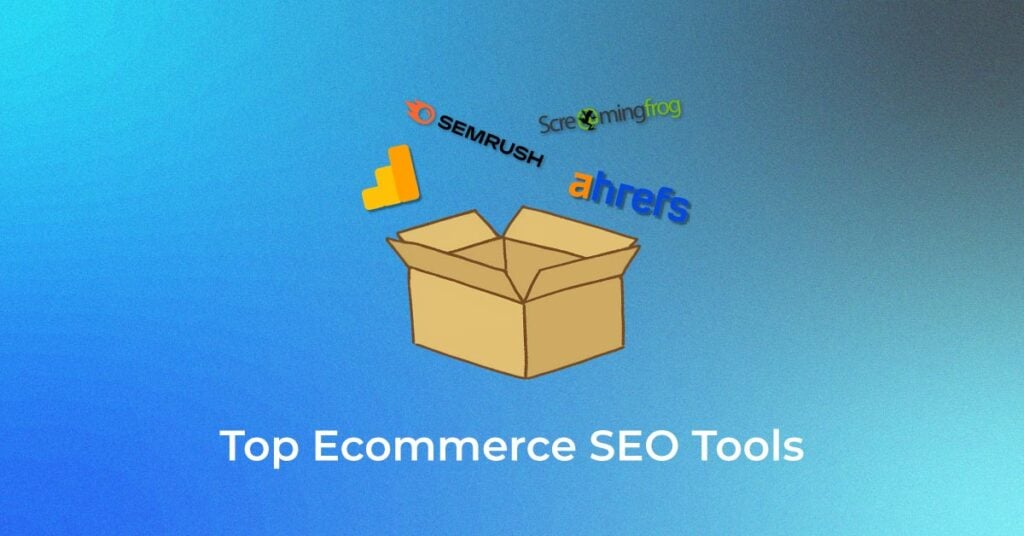Why Ecommerce Businesses Need SEO Tools
Key Benefits of SEO Tools for Online Stores
When you run an e-commerce business, carving out a visible niche on the internet is crucial. The digital landscape is fiercely competitive, and standing out requires a strategic approach—this is where ecommerce SEO tools come in. They offer practical, data-driven solutions to elevate a store’s online presence, ensuring potential customers find them with ease.
With these tools in hand, you gain enhanced reporting capabilities, providing clear insights into your store’s ranking on search engine results pages. They help you identify much-needed content gaps by analyzing your competitors, unlock essential keywords to target for organic growth, and enable the crafting of a potent content strategy. Plus, they’re instrumental in improving product descriptions—an absolute must for boosting product page performance and customer engagement.
SEO tools for online stores bridge the gap between guesswork and precision. They’re the compass for navigating the complex waters of internet marketing, ensuring every spent marketing dollar works harder and every piece of content reaches its intended audience more effectively.
How Search Engine Optimization Tools Drive Traffic and Increase Sales
SEO tools are the secret weapons in an ecommerce store’s arsenal to skyrocket traffic and ramp up sales. They point out exactly what customers are searching for and how they’re interacting with your website. By leveraging this knowledge, you’re better positioned to attract more visitors who have a genuine interest in what you’re offering.
These tools often have the capacity to uncover the keywords that shoppers use right before they make a purchase, which is invaluable for tailoring your SEO tactics to capture ready-to-buy traffic. Once prospective customers land on your site, well-optimized content fueled by SEO data keeps them engaged and shepherds them through to checkout.
Whether it’s analyzing trends, optimizing product listings, or understanding the customer journey, SEO tools provide comprehensive data that converts into tangible growth. They ensure that your store consistently meets potential customers at the right place and the right time, ultimately leading to an uptick in transactions and a robust bottom line.
The 10 Best Ecommerce SEO Tools for 2025
1. Google Analytics: In-Depth Traffic and User Insights
Google Analytics is a powerhouse when it comes to dissecting the traffic and user behavior on your ecommerce site. It’s a tool that’s been tried and trusted by countless businesses to provide the deeper layers of understanding needed to optimize online performance.
Firstly, Google Analytics lights up the path visitors take on your website, showing which pages they linger on and which they bounce from. This kind of insight helps you to restructure your layout and refine the user experience. Additionally, it breaks down demographic data so you can better understand who your customers are and personalize their shopping experience.
Key Benefits:
- Enhances decision-making with data-driven insights.
- Enables targeted content and marketing strategies.
- Aids in refining product placement for maximum exposure.
- Helps to reduce customer acquisition costs.
- Tracks the effectiveness of SEO efforts over time.
Best For:
- Medium to large e-commerce stores looking for comprehensive insights into user behavior, customer demographics, and sales trends. It suits businesses ready to leverage advanced analytics for aggressive growth.
2. Ahrefs: Advanced Keyword Research Tool and Competitor Analysis
Ahrefs is a powerful tool for businesses looking to enhance their SEO strategies and conduct competitor research. Its extensive database and robust features make it an essential resource for improving search engine rankings and gaining a competitive advantage.
This tool isn’t just about keywords; it’s about understanding the landscape of your ecommerce niche. Ahrefs helps you to spot what your competitors are ranking for and the backlinks that are propping up their domain authority. With this information, you can craft a strategy not just to meet the industry standard, but to exceed it.
Key Benefits:
- Equip your site with targeted keywords that attract quality traffic.
- Stay ahead of competitors by monitoring their content strategies.
- Understand backlink opportunities to enhance your site’s authority.
- Discover content ideas that resonate with your audience.
- Get actionable insights to tackle on-site optimization issues.
Best For:
- Established ecommerce businesses willing to invest in comprehensive keyword research, competitor analysis, and pursue aggressive link-building campaigns to improve their SEO positioning and domain authority.
3. SEMrush: All-in-One SEO and Marketing Management
SEMrush is an all-in-one suite that brings together a wide array of SEO and marketing tools under one roof. Its versatility and depth make it a favorite for e-commerce businesses looking to optimize every facet of their online visibility.
Not only does SEMrush facilitate extensive keyword research and track ranking positions, but it also conducts site audits to identify and suggest fixes for various technical SEO issues. Add to that the competitor analysis tools and backlink audits, and you have a robust solution that offers a 360-degree view of your SEO and marketing efforts.
Key Benefits:
- Centralizes multiple SEO tasks into one platform for efficiency.
- Uncovers technical improvements to enhance site performance.
- Offers insights into keyword trends and ranking progress.
- Assists in developing a powerful content and SEO strategy.
- Aids in outmaneuvering competitors with exhaustive market data.
Best For:
- Ecommerce businesses of all sizes looking for a comprehensive SEO and marketing tool to inform their strategy and track their progress, particularly those with the capacity to utilize a wide range of features to their fullest.
4. Google Search Console: Essential Website Monitoring
Google Search Console tops the list as an essential tool for any ecommerce store serious about monitoring site health and search performance. It offers vital capabilities for ensuring your website is indexed correctly by Google and troubleshooting potential issues that could impact your rankings.
Acting as a direct line of communication between your site and Google, Search Console allows you to understand how Googlebot views your pages, which is invaluable for on-page SEO. It also pinpoints issues such as mobile usability problems and security issues, which could otherwise hinder a smooth user experience and thus affect your store’s performance.
Key Benefits:
- Ensures your site is indexed and visible to searchers.
- Directly addresses issues affecting your search ranking.
- Increases organic search visibility with improved site health.
- Monitors user experience factors like mobile usability.
- Streamlines the detection and resolution of security issues.
Best For:
- Ecommerce stores of any size need a free, reliable tool to keep their site in Google’s good graces and to monitor critical SEO factors that influence search rankings and user experience.
5. Screaming Frog: Technical SEO Audits for Issue Detection
Screaming Frog SEO Spider is an essential tool for any Ecommerce website focused on technical SEO. This desktop program efficiently crawls sites to identify various issues that may hinder search engine performance.
What makes this tool particularly effective is its ability to identify common yet often overlooked issues, such as broken links and duplicate content. It generates detailed reports on site performance, highlighting areas that require attention and enabling a systematic approach to optimization.
Key Benefits:
- Quickly identifies SEO issues for prompt resolution.
- Enhances on-page elements for better search engine visibility.
- Streamlines website architecture for improved crawling and indexing.
- Assists with creating error-free sitemaps for search engines.
- Saves time on manual website audits with automated crawling.
Best For:
- Ecommerce businesses with a sizeable amount of content looking for an in-depth tool to conduct comprehensive technical SEO audits and monitor the site’s structural integrity.
6. AnswerThePublic: Content Ideation for Targeted Topics
AnswerThePublic is a unique content ideation tool that is highly valuable for ecommerce businesses seeking to tap into the minds of their customers. By sourcing and visualizing search query data, this tool enables merchants to produce content that aligns precisely with what their audience is seeking.
By inputting a keyword, this tool provides a variety of questions, prepositions, and comparisons that users commonly search for. These insights can be used to create relevant content, such as blog posts, FAQs, and product descriptions, that attract traffic and address the specific interests and concerns of potential customers.
Key Benefits:
- Empowers content creation with direct insights from customer inquiries.
- Enhances content relevancy which can improve SEO rankings.
- Helps discover new niche content areas and market opportunities.
- Boosts engagement by addressing specific user questions.
- Facilitates a strong, keyword-rich FAQ section that targets voice search queries.
Best For:
- Ecommerce stores need a creative edge in their content strategy and those looking to develop a deeper connection with their customer base by answering their most pressing questions.
7. KWFinder: Finding Long-Tail Keywords with High Intent
This tool is excellent for discovering long-tail keywords, which are valuable for attracting high-intent traffic. With less competition than more generic terms, long-tail keywords can help capture visitors further along in the buying cycle, increasing the likelihood of conversions.
Its user-friendly interface simplifies keyword research, allowing users to identify variations that potential customers are searching for. This focus on quality over quantity helps prioritize terms that drive sales rather than just traffic.
Key Benefits:
- Helps locate less competitive keywords for better ranking opportunities.
- Increases chances of attracting qualified, ready-to-purchase traffic.
- Offers valuable insights into keyword effectiveness over time.
- Enables smaller stores to compete with larger players by targeting niche keywords.
- Improves content relevance by focusing on specific customer searches.
Best For:
- Small to mid-sized ecommerce businesses aiming to improve their organic traffic quality by focusing on long-tail keywords with high purchase intent and lower competition levels.
8. Google PageSpeed Insights: Performance and Speed Optimization
In the fast-paced world of ecommerce, website performance, and speed can’t be overstated. Google PageSpeed Insights is a prime tool for optimizing these critical factors, as it not only gauges your site’s loading speed but also provides actionable recommendations for improvement. Given that site speed impacts SEO, bounce rates, and overall user experience, this tool is indispensable.
PageSpeed Insights analyzes both desktop and mobile versions of your site, giving you a clear understanding of how your store performs across different devices. Moreover, it’s instrumental in helping you enhance Core Web Vitals, which are a set of factors Google uses to assess a web page’s user experience.
Key Benefits:
- Provides clear directives to improve page loading speeds.
- Assists in boosting search engine rankings through better performance.
- Elevates user satisfaction leading to increased conversions.
- Helps to identify technical issues that non-experts can address.
- Frequent updates adapt to the latest web performance standards.
Best For:
- Ecommerce sites across the board need to ensure their performance is up to scratch, particularly those that haven’t yet fully optimized their pages for speed or are about to undergo a redesign.
9. Moz Pro: Strategy Development and Structured Data Integration
Moz Pro stands as an authoritative figure in the realm of SEO tools, providing a comprehensive solution geared towards strategy development and implementation, including the increasingly important aspect of structured data integration.
The tool goes beyond the basics, offering actionable suggestions to not only improve rankings but also enhance the visibility of your product listings in search results through structured data markup. This can lead to richer snippets that attract more clicks. Moz Pro’s insights help craft an SEO strategy that’s both data-driven and user-focused, ultimately leading to a competitive edge in the digital marketplace.
Key Benefits:
- Helps develop a tailored SEO strategy using comprehensive data analysis.
- Enhances visibility and click-through rates with structured data insights.
- Streamlines site improvements with actionable audit recommendations.
- Enables you to gauge the effectiveness of your SEO through rank tracking.
- Improves link-building efforts with detailed backlink profiles.
Best For:
- Ecommerce businesses focused on crafting a long-term, scalable SEO strategy that includes the refinement of structured data to enhance their product listings in search results.
10. Ubersuggest: Affordable SEO Solutions for Growth
Ubersuggest is a formidable SEO contender, especially appealing to ecommerce businesses looking for growth without the hefty price tag. Developed by Neil Patel, this tool democratizes SEO by delivering powerful insights in a user-friendly and cost-effective package.
Its ability to provide detailed keyword research for ecommerce website, including search volume, competition, and CPC data, is essential for online stores wanting to optimize their content strategy. Ubersuggest doesn’t stop there—it also offers site auditing to find technical issues, generate content ideas, and perform competitor analysis.
Key Benefits:
- Offers high-value keyword insights to drive targeted traffic.
- Facilitates the identification and rectification of site issues for better performance.
- Sparks content creation that can engage audiences and increase dwell time.
- Provides intelligence about competitors’ strategies helping you to stay ahead.
- Cost-effective for small and medium-sized ecommerce businesses.
Best For:
- Budget-conscious ecommerce startups and small to medium-sized businesses seeking a comprehensive, yet affordable SEO tool to fuel their growth and rival larger competitors.
Maximizing the Impact of Your Ecommerce SEO Tools
Effective Keyword Research Strategies
Effective keyword research is a strategic process that boosts your ecommerce store’s relevance and reach. It requires understanding your products and your audience’s search language.
Begin with broad keywords, then narrow down to niche, long-tail keywords. Use tools to evaluate keyword difficulty and search volume, while considering user intent. Combining product-specific and category keywords with informational content ensures comprehensive coverage.
Incorporate LSI (Latent Semantic Indexing) keywords for added relevance and strategically place keywords across product listings and descriptions. Aim to integrate keywords naturally, enhancing reader value and improving the shopping experience without resorting to keyword stuffing.
Competitor and Market Trend Analysis
Competitor and market trend analysis is essential for staying ahead in the dynamic ecommerce landscape. By examining competitor strategies and market shifts, businesses can anticipate changes and adapt quickly for a competitive edge.
Utilize tools to uncover competitors’ successful keywords, backlink strategies, and content marketing techniques. Analyze their product offerings, pricing models, and customer reviews to identify market gaps and improvement areas. Additionally, monitor social media and industry forums to stay updated on trends influencing customer preferences.
Stay adaptable and use these insights to refine your SEO and marketing strategies. By understanding the competition and current market trends, you can make informed decisions that resonate with your target audience and enhance your store’s market position.
Enhancing Site Speed and Technical SEO
Enhancing site speed and technical SEO is crucial for providing a seamless shopping experience that encourages customer retention. A slow site can lead to higher bounce rates and lower conversions.
Start by using tools like Google PageSpeed Insights to identify performance bottlenecks. Optimize images and leverage browser caching for faster load times. Implementing CDN (Content Delivery Network) services can reduce latency, especially for global users.
Technical SEO ensures search engines can crawl and index your site effectively. Regular site audits can uncover hidden issues, and addressing them—such as improving site structure, optimizing URLs, ensuring mobile responsiveness, and implementing schema markup—can significantly enhance your store’s visibility and ranking in search results.
Creating High-Value Content and Insights
Creating high-value content hinges on understanding your audience and crafting material that informs, engages, and converts. Use tools like AnswerThePublic and BuzzSumo to discover relevant topics.
Focus on content that adds value, such as product guides, insightful articles, or how-to videos. Provide unique insights to establish your ecommerce store as a thought leader, building trust and encouraging social sharing for improved SEO.
Prioritize consistency and quality, using a relatable tone and accurate information, while including calls to action to guide customers through the purchase funnel. This approach strengthens both your SEO efforts and brand narrative.
Conclusion
In today’s competitive digital landscape, SEO tools are essential for ecommerce success. They help uncover key insights, optimize product pages, conduct competitor analysis, and improve site health, ensuring your store stays visible and relevant.
With tools like Google Analytics for traffic insights, Ahrefs for keyword research, and SEMrush for comprehensive SEO management, you can attract more customers, enhance user experiences, and boost sales. However, managing and optimizing these tools can be overwhelming, especially with the constant changes in algorithms and SEO strategies.
If you’re fed up with figuring out the entire process on your own and want expert help, Infidigit’s ecommerce SEO services are the perfect solution. Our experienced team will take care of the complexities, helping you maximize your website’s potential while you focus on growing your business. Invest in professional SEO services and see tangible results that drive long-term growth and profitability for your ecommerce store.
FAQs About Ecommerce SEO Tools
Which SEO tools work best for ecommerce?
The best SEO tools for eCommerce offer robust features for keyword research, competitor analysis, and site optimization. Tools like SEMrush and Ahrefs are great for an in-depth look at your competitive landscape and keyword profile. Google Analytics and Search Console provide essential metrics on user behavior and site performance while Screaming Frog can deep-dive into on-page issues. For specific needs like long-tail keyword research, KWFinder is highly effective. Ultimately, the best tool depends on your store’s size, the complexity of your SEO needs, and your budget.
How can SEO tools help grow ecommerce sales?
SEO tools can significantly boost ecommerce sales by revealing the keywords customers use in their buying journey and optimizing site content to rank for these terms. Tools like Google PageSpeed Insights ensure your site loads quickly, reducing bounce rates, while Google Analytics uncovers customer behavior insights to personalize their shopping experiences. With competitor analysis features from SEMrush or Ahrefs, you can outsmart the competition and attract more qualified traffic to your site. Enhanced content strategies informed by AnswerThePublic can engage visitors better, leading to increased conversions and sales.
How frequently should I use SEO tools?
SEO tools should be used regularly to monitor and adjust your ecommerce strategies for optimal performance. Weekly check-ins with tools like Google Analytics and Search Console can help keep track of traffic and site health. Monthly deep dives with SEMrush or Ahrefs are recommended for backlink and content strategy reviews. Technical SEO audits with Screaming Frog might be less frequent, potentially quarterly, unless major site changes are implemented. Staying proactive with your SEO practices ensures that you’re constantly improving and evolving with industry and algorithm shifts.
What are some common mistakes to avoid when using Ecommerce SEO tools?
When using ecommerce SEO tools, avoid common pitfalls such as keyword stuffing, which can result in penalties rather than improved rankings. Also, sidestep relying solely on automated insights; human analysis is key to interpreting data correctly. Don’t neglect the technical aspects of SEO; fix the issues that tools like Screaming Frog uncover, as neglecting these can harm your site’s user experience and rankings. Additionally, be cautious with link-building tools—focus on quality backlinks instead of quantity to avoid spammy practices. Lastly, remember that SEO is a long-term strategy, and tools are aids, not instant solutions. Patience and continuous optimization are essential.
Popular Searches
How useful was this post?
0 / 5. 0
















